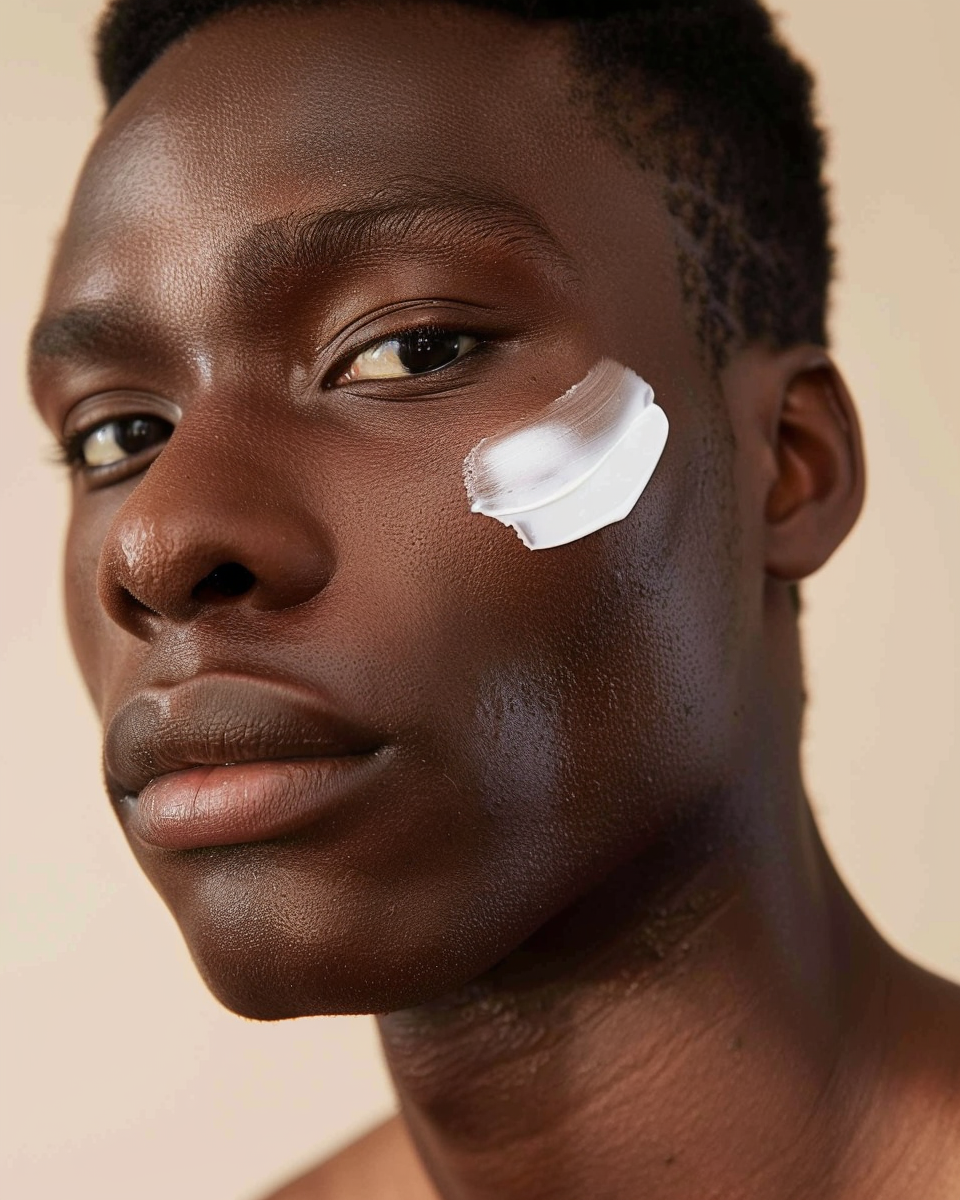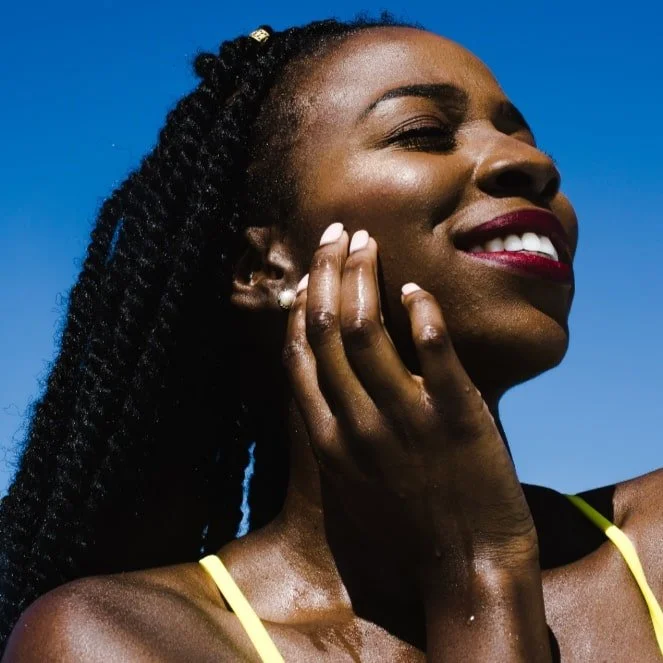Black Skin, Sunscreen & Vitamin D
IT IS A WELL-KNOWN FACT THAT DARKER SKIN STRUGGLES WITH UTILISING UVB RAYS FROM THE SUN TO MAKE VITAMIN D. ON ONE HAND, HIGHER LEVELS OF MELANIN OFFER SOME PROTECTION FROM SUN DAMAGE BUT ALSO WORK AGAINST THE BODY PREVENTING IT FROM NATURALLY DEVELOPING VITAMIN D.
IN THIS ARTICLE WE WILL EXPLORE THE IMPORTANCE OF VITAMIN D AS WELL AS DISCUSS HOW TO MAINTAIN ADEQUATE LEVELS WHILST ALSO PROTECTING YOUR SKIN FROM UV DAMAGE.
WHAT IS IT VITAMIN D?
· It is a fat-soluble hormone produced within the skin after exposure to sunlight and it’s responsible for increasing the absorption of calcium in the intestine and it prevents rickets in children as well as osteomalacia in adults.
· There are two types D2 (Calciferol) and D3 (Cholecalciferol)
· D3 is the most popular, the most effective and essential form of the vitamin.
WHAT ARE THE BENEFITS OF VITAMIN D?
· Enables normal functioning of the immune system
· Maintains normal muscle function
· Supports the development of bones and teeth, as well as normal utilisation of calcium phosphorous
· Assists optimum cell division within the body.
HOW DO YOU GET VITAMIN D?
Vitamin D is produced after exposure to sunlight but there are many food sources of vitamin D including oily fish such as mackerel and salmon, fish oil, eggs (especially the yolks), liver and butter. Some foods are also fortified with vitamin D.
Even with the abundance of foods containing vitamin D, it’s still not possible to achieve our recommended daily amount (RDA) through food and sun exposure alone.
THE NOT SO SUNNY SIDE…..
The naturally higher levels of melanin in the epidermis of darker skin pose a problem for the synthesis of Vitamin D3. As necessary as melanin is for protection against the effects of UV radiation, it also acts as blocker preventing dark-skinned people from producing the amount of vitamin D required for their wellbeing.
In the northern hemisphere where the levels and intensity of sunlight vary, darker skin tones tend to suffer from a vitamin D deficiency and without it our bodies cannot absorb calcium, magnesium and phosphate, which are essential for maintaining strong bones and teeth.
DOES SUNSCREEN LEAD TO VITAMIN D DEFICIENCY?
Melanin can inhibit the body’s ability to adequately absorb the UVB rays necessary to induce vitamin D naturally in the skin and using a sunscreen can compound that inability as the job of sunscreen and melanin is to guard against UV damage to the skin.
Health professionals often advise that those with darker skin tones should spend more time exposed to the sun in order to make the same amount of vitamin D as Caucasian skin tones. In the same breath; health professionals also advise that darker skin tones should apply sunscreen.
Understandably, this information can cause a lot of confusion about the best ways to maintain healthy vitamin D levels whilst protecting against the harmful effects of UV radiation exposure. But it’s important to remember that health research is constantly being refined and updated hence why sometimes it can be difficult for new findings to be pushed out into practice quickly enough to elicit the necessary changes.
“So before you go throwing the sunscreen in the bin, it’s important to note that long term unprotected sun exposure puts all skin tones at risk of number of conditions; from Actinic Keratosis to carcinoma and melanoma, which are forms of skin cancer. Additionally, UV radiation also worsens hyperpigmentation and hastens the development of lines and wrinkles.”
— Dija Ayodele, Aesthetician
SO, HOW DO YOU GET THE RECOMMENDED DAILY ALLOWANCE OF VITAMIN D?
Public health agencies are aware that it’s not possible to receive enough vitamin D through diet and sun exposure alone, especially for darker skinned individuals. Sun protection is essential for protecting against cancer. This is why health bodies recommend daily, year-round supplementation of 10μg (micrograms) for minority ethnic groups and those who fall into the category of getting little to no sunshine at all.
So with that in mind, and as with all health matters, before you start popping pills, we recommend that you check with your GP what would be the right amount for your particular needs.











